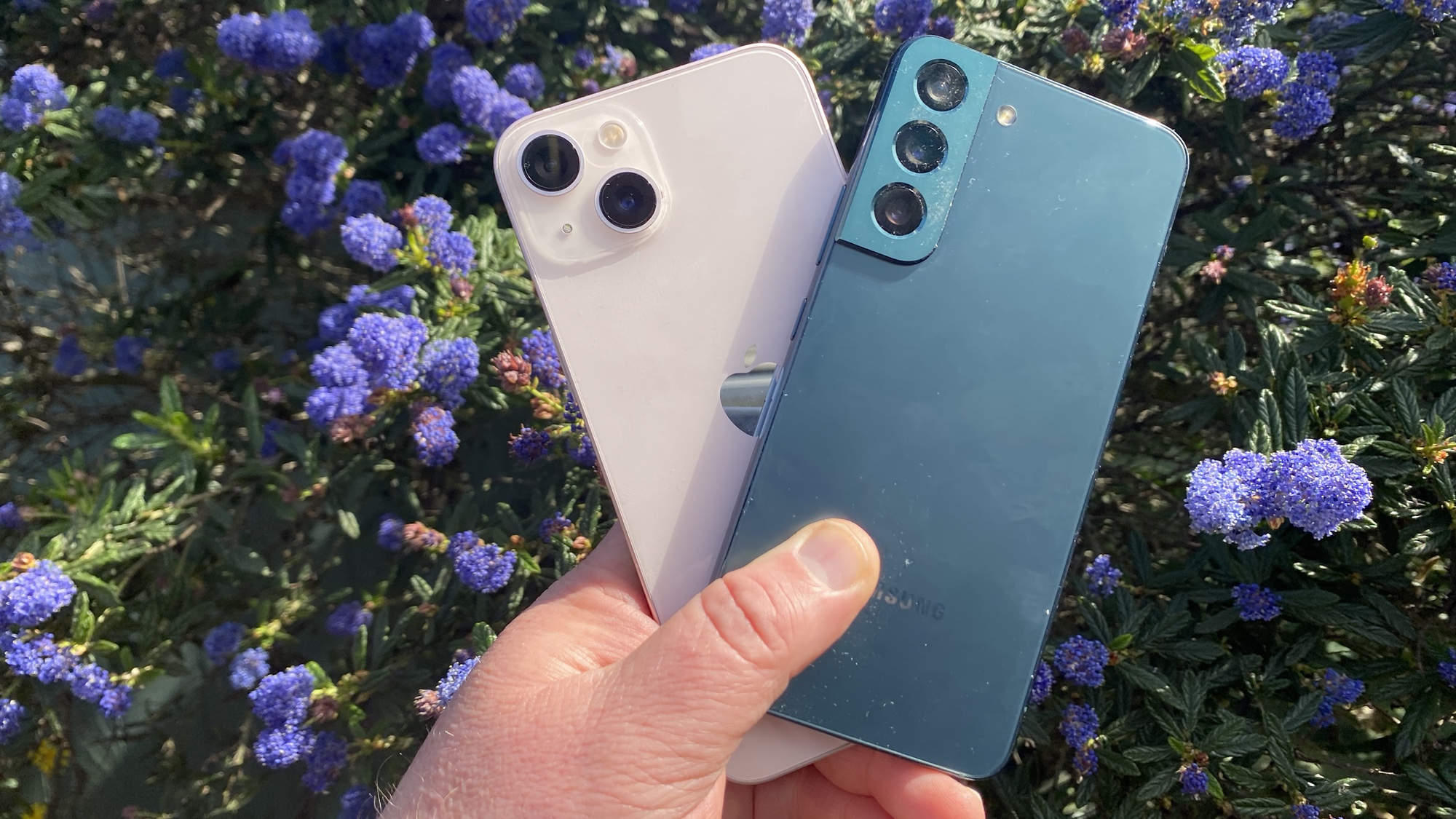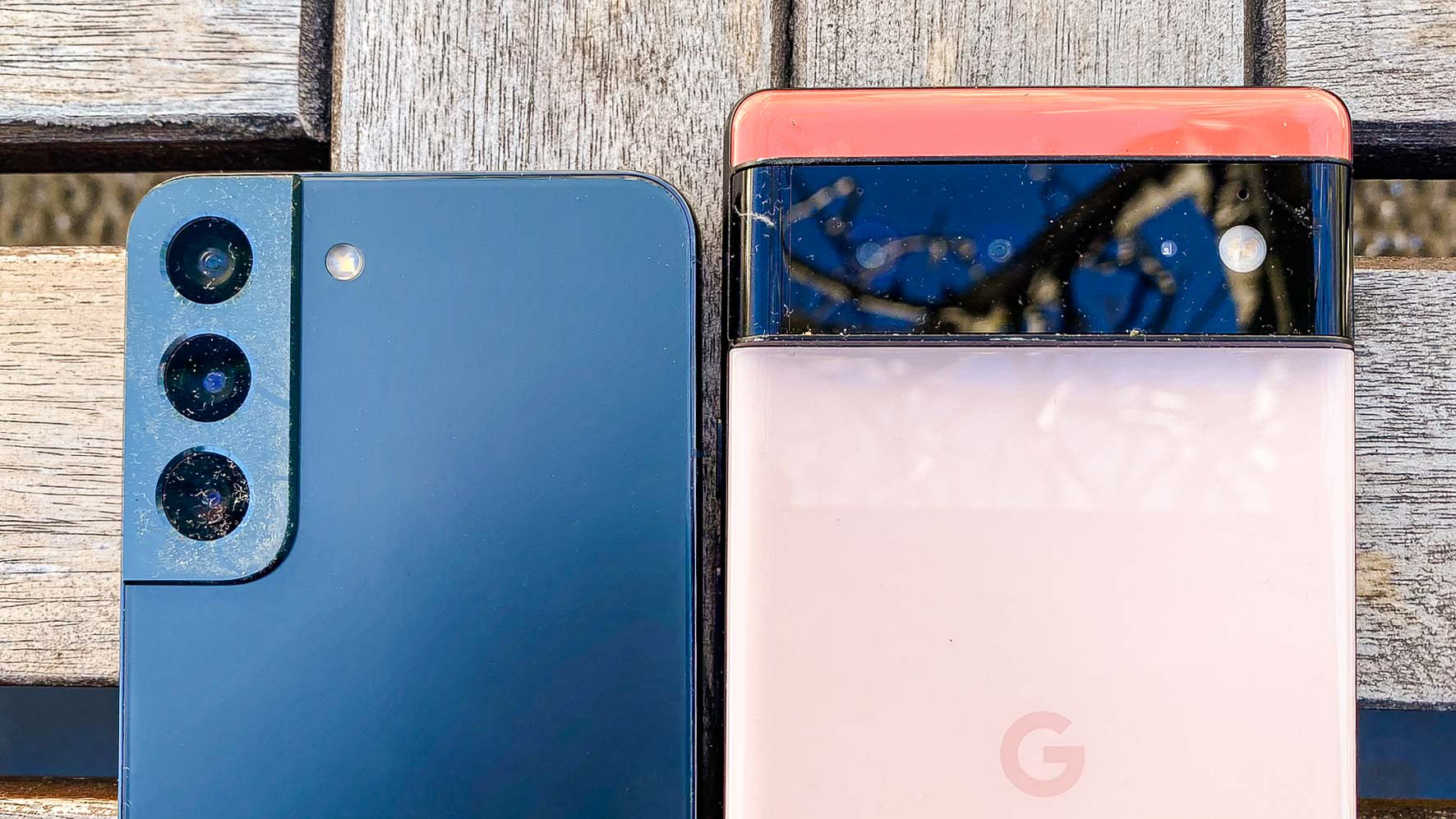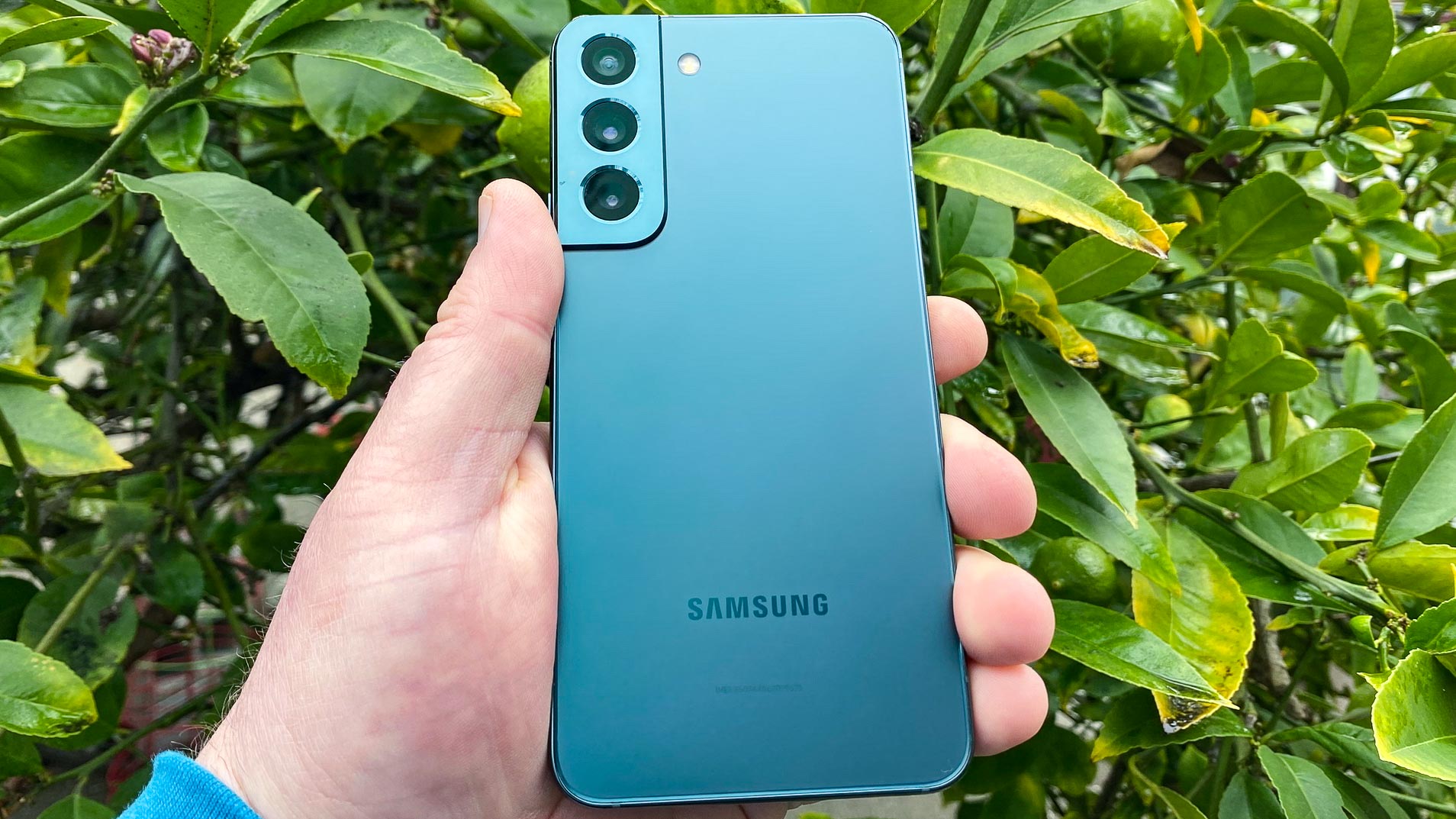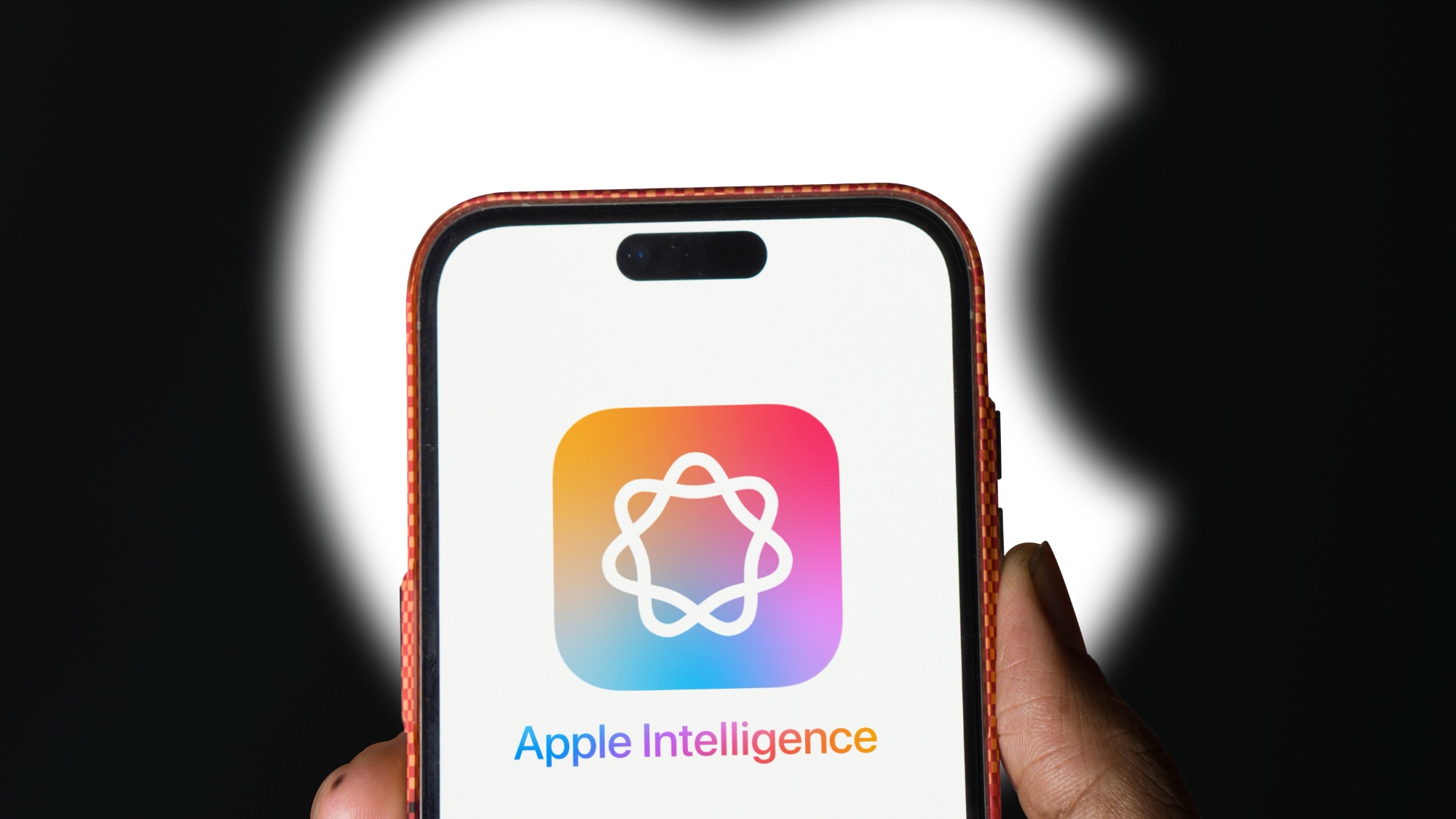Samsung Galaxy S22's best feature is something the iPhone 13 can't match
When it's time to zoom in, you'll want a Galaxy S22

Part of the testing process for my Samsung Galaxy S22 review involves comparing the phone to other devices in its price range, and seeing whether exceeds or falls short of whatever else is out there. Since the Galaxy S22 starts at $799, that means including the iPhone 13 and Google Pixel 6 in those comparisons. The iPhone 13 costs the same as the S22, after all, and while the Pixel 6 undercuts both phones, with a $599 starting price, its capabilities are in the same ballpark.
My S22 review and subsequent Galaxy S22 vs. Pixel 6 face-off goes into greater detail on how the various phones compare — Samsung's phone wins some and loses some, which is not surprising given how closely matched this trio of phones turns out to be. But there's one area where the Galaxy S22 tops both of its would-be rivals, and you see it the moment you flip the phones over and look at their rear camera arrays.
The Galaxy S22 has a dedicated telephoto lens. The iPhone 13 and Pixel 6 do not.

We're only singling out the iPhone 13 and Pixel 6 because they rank among the best camera phones. The truth is, it's hard to find a phone with a telephoto lens that costs less than $800. Last year's OnePlus 9 didn't have one, for example, and while the upcoming OnePlus 10 Pro does feature a telephoto camera, it's likely to cost more than the Galaxy S22 when it debuts in the U.S.
To be assured that your phone features a telephoto lens among its rear cameras, you've got to pay up for the privilege. The iPhone 13 Pro has one, but that device costs $999. At $899, the Pixel 6 Pro is less expensive, though that's still a bigger asking price what Samsung charges for the S22.
So the Galaxy S22 has a big hardware edge over the other phones you're most likely to consider when mulling over a smartphone purchase. And Samsung has made sure to exploit that advantage for all its worth.
Samsung Galaxy S22 telephoto lens: What's different
Past Galaxy S models have included telephoto lenses. But with the S22, Samsung made a key improvement that improves the already impressive zoom capabilities of its flagship phone.
Sign up to get the BEST of Tom's Guide direct to your inbox.
Get instant access to breaking news, the hottest reviews, great deals and helpful tips.

The Galaxy S22 and Galaxy S22 Plus both support a 3x optical zoom. That's an improvement from their respective predecessors, as the Galaxy S21 and S21 Plus could only manage a 3x hybrid zoom. That means clearer, more detailed results when you zoom in on a subject.
It also lessens the S22's reliance on digital zoom, which uses magnification technology to enlarge the area of the image you're capturing. The result can often be lesser quality than a shot captured with optical zoom as you're reducing the number of pixels in the shot, potentially adding noise to the background.
Apple and Samsung compensate for this with their own camera phones by turning to computational photography to clean up their digital zooms. The results can actually be pretty impressive, as anyone who's ever looked at a virtually clear zoom enhanced by the Pixel's Super Res Zoom capabilities.
Battle of the zooms: Galaxy S22 vs. Pixel 6 vs. iPhone 13
You can see the results when we stack up zoom shots captured by the Galaxy S22 and other top phones. Let's start with the Pixel 6 to see if that Super Res Zoom feature can match an optical zoom.
The answer? It sort of does so long as you don't zoom in two much. I pressed the automatic zoom in the camera app on both phones — that's a 2x zoom for the Pixel 6 and a 3x zoom for the Galaxy S22 — and the results are fairly similar. The Pixel 6 captures a pretty clean view of the Oakland skyline without the visible fuzziness you sometimes see from a digital zoom. I think the colors aren't as dark in the S22 shot, making them more true-to-life, but either basic zoom produces a solid picture.
Maxing out the zoom on the Pixel 6 takes you to a 7x zoom, and here's where things start to get fuzzy for the Pixel 6. You can't read the lettering on the Tribune building, and the sharp lines that defined the outlines of buildings in the previous shot have become a little more visibly blurred. Those details are still sharp in the S22 shot, particularly the name of the Tribune building.

You don't have to stop at 7x on the Galaxy S22 if you don't want to — Samsung's Super Resolution Zoom feature supported by both the Galaxy S22 and Galaxy S22 Plus supports 30x zooms. The resulting shot gets you very close to what you're shooting — I'm standing on the opposite shore of a channel of water going past downtown Oakland — but the amount of noise increases in the finished image. It's also very had to frame the shot when you're zoomed in this close. Attaching your Galaxy S22 to a tripod will help with some of those issues, but don't expect crystal-clear clarity from Super Resolution Zoom.
What about the iPhone? Testing an iPhone 13 against the Galaxy S22 in that same location, we see a very similar result to our Pixel 6/Galaxy S22 comparison. The iPhone 13's optical zoom, aided by computational photography, looks decent, though it lacks the detail that Samsung's phone is able to capture. And image quality from the iPHone 13 deteriorates more quickly as we zoom in — the iPhone 13 maxes out at 5x — while the S22 is better able to maintain a sharp picture.
Samsung Galaxy S22 outlook
A telephoto lens alone isn't enough to swing your smartphone preference over to the Galaxy S22. The iPhone 13 and Pixel 6 cameras outperform the latest Samsung flagship in other ways, including how they handle color, skin tones and selfies. We'd note that low-light photography is improved on the S22, but we still think Apple and Google make better camera phones.
Still, when it comes to zoom shots, the Galaxy S22 has a definite advantage over these other phones. And while your buying decision is going to take a lot of other factors into account, the S22's zooming prowess is another mark in Samsung's favor.
Philip Michaels is a Managing Editor at Tom's Guide. He's been covering personal technology since 1999 and was in the building when Steve Jobs showed off the iPhone for the first time. He's been evaluating smartphones since that first iPhone debuted in 2007, and he's been following phone carriers and smartphone plans since 2015. He has strong opinions about Apple, the Oakland Athletics, old movies and proper butchery techniques. Follow him at @PhilipMichaels.
-
Tristin34 The reason why IPhone 13 can't match the telephoto lens on the s22 Ultra is only cause it wasn't supposed to be built on the 13, it was built into the 13 pro and 13 pro max, your comparing the s22 Ultra with the wrong phoneReply

